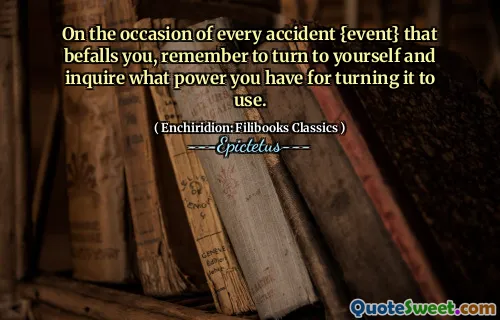
Remember then that if you think the things which are by nature slavish to be free, and the things which are in the power of others to be your own, you will be hindered, you will lament, you will be disturbed, you will blame both gods and men: but if you think that only which is your own to be your own, and if you think that what is another's, as it really is, belongs to another, no man will ever compel you, no man will hinder you, you will never blame any man, you will accuse no man, you will do nothing involuntarily {against your will}, no man will harm you, you will have no enemy, for you will not suffer any harm. If
📖 Epictetus
In this passage, the author emphasizes the importance of understanding the nature of freedom and ownership. When individuals mistakenly believe that they possess things that are beyond their control, they set themselves up for disappointment and frustration. This misunderstanding leads to lamentation and blame directed towards others, including the divine. Thus, recognizing what is truly one's own helps maintain inner peace and autonomy.
Furthermore, the text suggests that by acknowledging the limits of one's control and accepting that other people's possessions truly belong to them, a person can avoid conflict and suffering. This clear distinction fosters a sense of liberation, as it prevents external factors from having power over one's emotional state. In this way, embracing this wisdom allows individuals to navigate life without the burden of blame or negative feelings towards others, leading to a serene existence.








